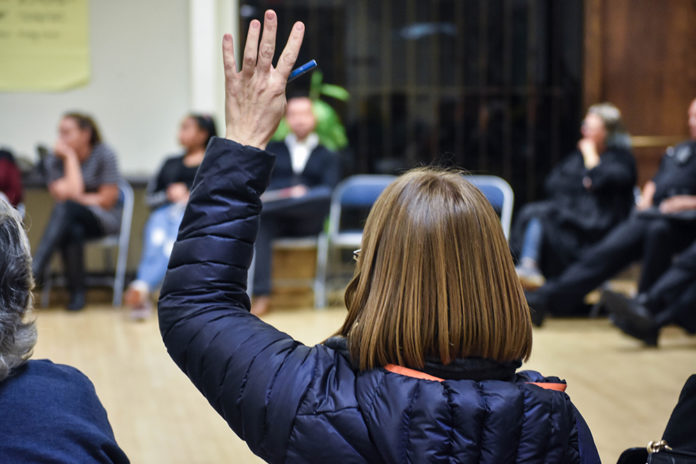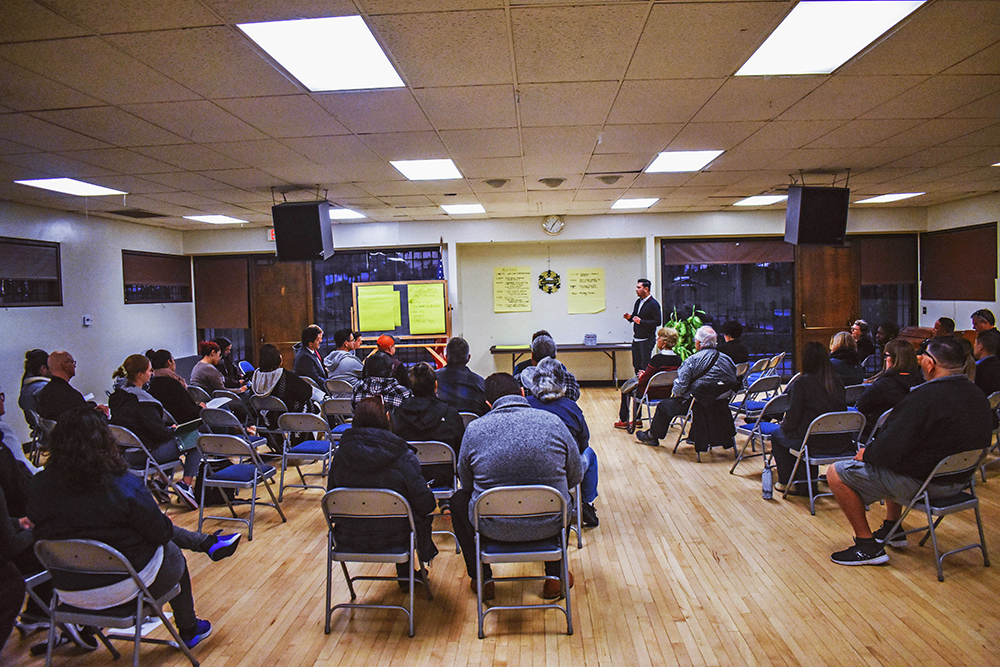
Highland Park residents gathered alongside city and state representatives March 21 at the Highland Park Senior Center to discuss liquor licensing laws. Many community members said that they felt frustrated that new liquor licenses are being administered even though the community has protested them. Residents said that patrons of bars and restaurants serving liquor vomit or urinate on their lawns, make noise late at night and take up residential parking space. Gemma Marquez, Highland Park resident and teacher, said that the high concentration of liquor stores in close proximity to schools and churches were damaging the community.
“We have to take the community into account. We are the ones who suffer,” Marquez said. “I understand that you have to have development, but people have to go to work in the morning.”
A liquor license can take up to a year to be approved and sometimes costs a business $12,000 in fees, according to Rocio Rivas, president of the Historic Highland Park Neighborhood Council (HHPNC). According to information handed out at the Highland Park town hall, business owners must first apply for a liquor license at their local Alcohol and Beverage Control (ABC) office. Next, business owners have to apply for a conditional use permit in which they need to let the residents around them know of their intent to sell liquor. Residents have the chance to protest the application at the Dept. of Regional Planning (DRP) public hearing and can appeal if they are unhappy with the planning administration’s decision to grant or not grant a license. According to Rivas, neighborhood appeals do little to stop new alcohol licenses from being awarded.
“It is a long process to get the permit, but in the end they get it,” Rivas said. “In the end, the community’s voice is one that’s sort of shut out.”

One reason that liquor licenses are still being administered in Highland Park is that property laws make it hard to deny a request for a license, according to Alex Garcia, an attendee at the town hall and the supervisor regional planner of East Los Angeles. Property license laws state that a business cannot be denied a liquor license unless the applicant is not qualified or the premises are not suitable.
Liquor licenses can increase violence and urban decay, according to studies conducted by the Pacific Institute and a data scientist at UC Berkeley. Many residents said that they felt that bars, restaurants and liquor stores were detrimental to their quality of life. The issue of alcohol licensing can be complicated in Highland Park, a neighborhood where new restaurants and bars are bringing money to the community, according to Marquez. The recent influx of business has caused a$415,000 increase in property values in the area since 2009. Liquor sales in the U.S. are also on the rise. According to a study done by the Distilled Spirits Council, the industry increased 5.1 percent in revenue last year, and brought in $27.5 billion in 2018.
Rivas said that stores serving liquor change the family feel of the community. Marquez said that she was not against development, but that the residents of a community should have a say in the direction their neighborhood is going in. Allegra Padilla, coordinator of community programs at Occidental and the moderator at the alcohol license town hall, said that quality of life issues have taken a back seat to new businesses.
“I feel that liquor licenses are not a priority in this community or really any community in Los Angeles, and that there are other ways to create revenue for small businesses,” Padilla said.
One town hall attendee said that they could not trust the city or state officials in light of recent corruption at the California Dept. of Alcoholic Beverage Control. The resident cited the recent Koreatown corruption scandal, where a former ABC official pleaded guilty to accepting tens of thousands of dollars in bribes.
Another resident who attended the town hall said that, because alcohol licenses were still being issued, the city and state officials were not listening to their complaints. Rivas said that many community members feel disconnected from city hall because residents are still not seeing a change.
“At what point will alcohol license approval stop? We have to be more responsible in terms of the proximity [to] single-family homes, schools, churches and maintaining that family-communal sense instead of turning it into a bar-hopping area or something that’s trendy,” Rivas said.
At the town hall, several residents proposed a moratorium, much like the one that has been enacted in San Francisco. A moratorium on alcoholic licensing is a temporary restriction on the number of alcohol licenses that can be issued, according to Washington DC’s Alcohol Beverage Regulation Administration. The moratorium in San Francisco’s mission district has caused some controversy, and such an approach has not yet been tried in Los Angeles.
![]()






























